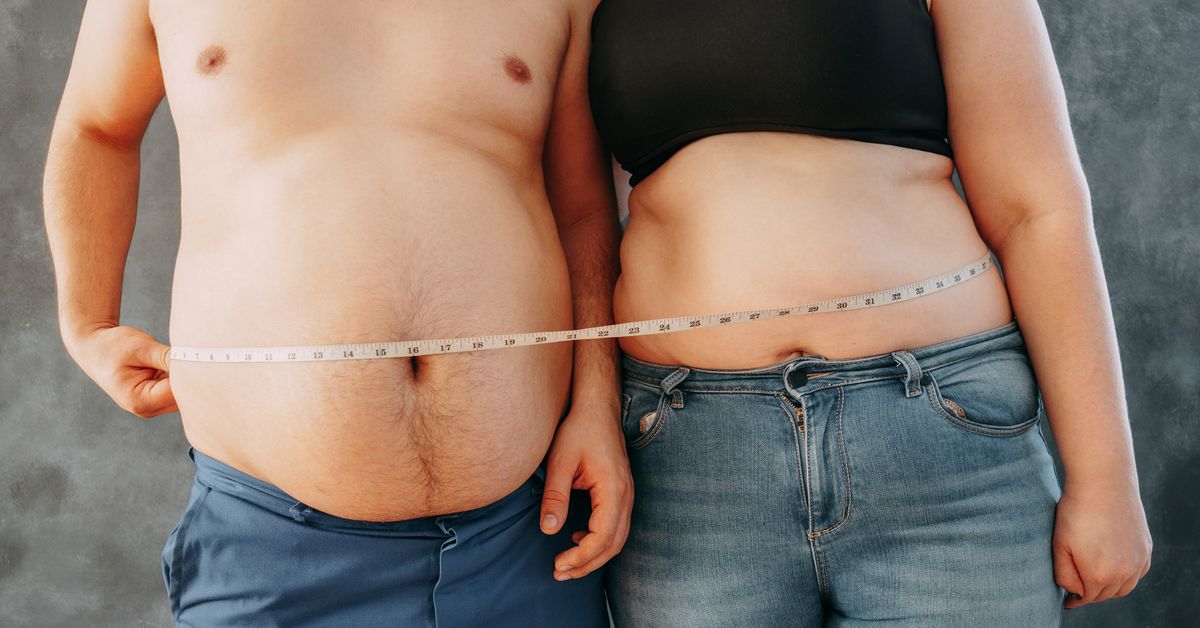A popular topic discussed in viral science stories and found on regurgitated content mills is that of the relationship between marital satisfaction and weight gain. A 13 May 2018 post on the website HipToro (which produces or copies detail- and source-sparse stories of dubious quality to build a network of viral content) is no exception to that rule:
Here’s a shocking fact, did you know that couples who truly love each other tend to grow fat. Yes, it has actually been backed by scientific proof. Have you ever felt that you were gaining a few pounds when you were in a relationship? Well, that’s because you were.
The fact of the matter is both recent research and less-than-recent research have suggested that there is a correlation between marital status or contentment and a variety of health outcomes — including weight gain. The most recent study, referenced in the HipToro story and published on 28 February 2018 in PLOS One, addressed the question of how health outcomes differ between single people and married couples. Using a decade of survey data from Australia, they reached these mixed conclusions:
Compared to singles, couples were significantly more likely to be a non-smoker, and meet recommendations for limited fast food, alcohol consumption and fruit and vegetable intake.
[...]
Conversely, couples were significantly less likely to be within a normal weight range.
Astute readers will note, however, that this study does nothing to address the "contentment" factor — the notion that the level of happiness in the relationship is related to weight. For insight into that question, one can turn to a 2013 study conducted by Southern Methodist University psychology professor Andrea Meltzer and colleagues. Based on survey data collected biannually for four years from 169 newlywed couples, the study concluded:
Own and partner satisfaction were positively associated with changes in weight, and this association was mediated by steps toward divorce: Spouses who were less satisfied than usual or had partners who were less satisfied than usual were more likely to consider divorce and thus less likely to gain weight.
[...]
These findings challenge the idea that quality relationships always benefit health, suggesting instead that spouses in satisfying relationships relax their efforts to maintain their weight because they are no longer motivated to attract a mate.
"On average, spouses who were more satisfied with their marriage were less likely to consider leaving their marriage, and they gained more weight over time," Meltzer said in a press release describing the research. "In contrast, couples who were less satisfied in their relationship tended to gain less weight over time."
There have been a number of other studies that address the broader questions of health outcomes in married couples compared to singles, and these studies have not always been consistent in their findings, either. Many studies have noted, for example, that couples tend to eat a healthier diet, smoke less, and consume less alcohol compared than singles. Other studies, however, have also noted that relationships and cohabitation may bring the "potential for encouraging unhealthy behaviours, as couples often perform behaviours like eating, watching TV and drinking alcohol together."
With the exception of the aforementioned 2013 study, however, few others have investigated questions related specifically to the level of contentment within a marriage as it relates to weight gain. A 2001 review highlighted the myriad complex ways in which marital happiness and health are (or could be) related. Such factors complicate one's ability to make blanket statements about marital happiness and weight gain, despite convincing evidence that the phenomenon may be real.
